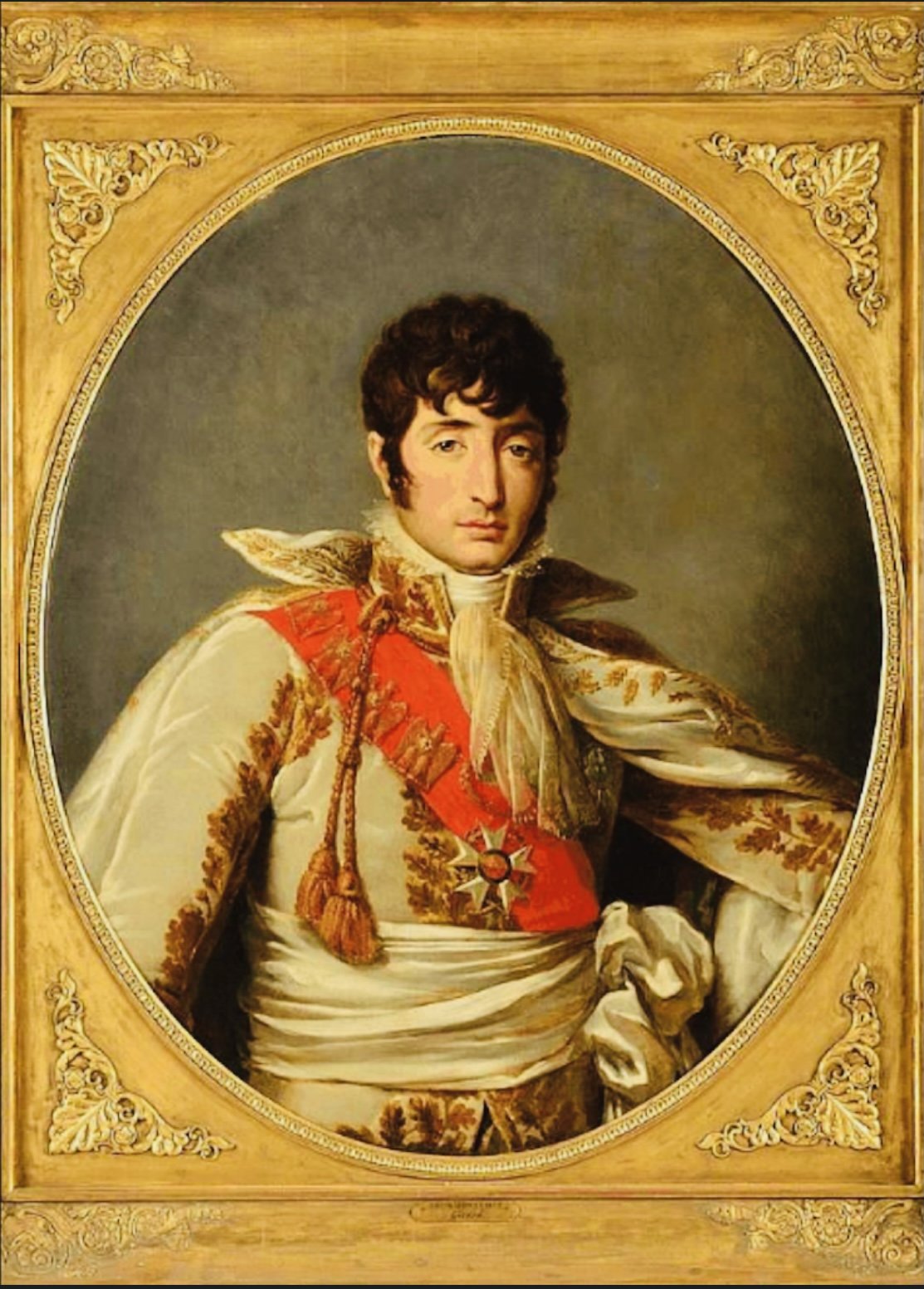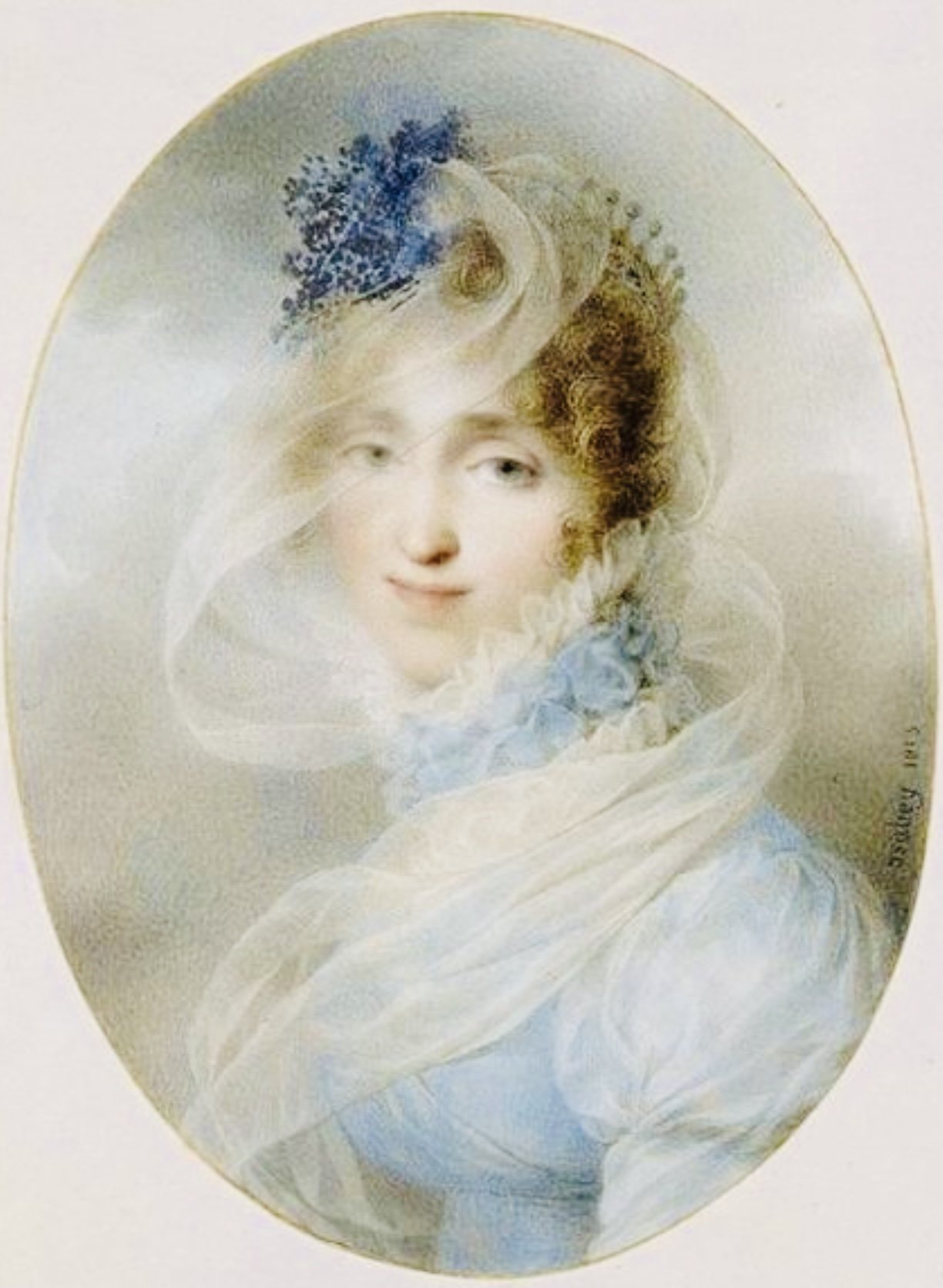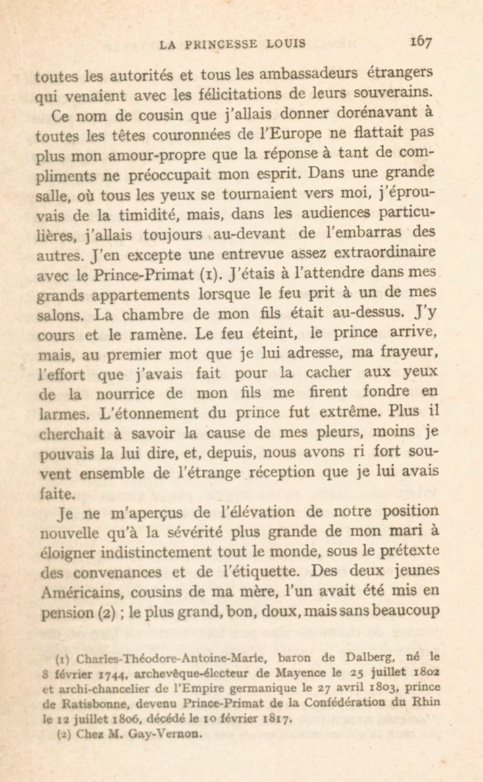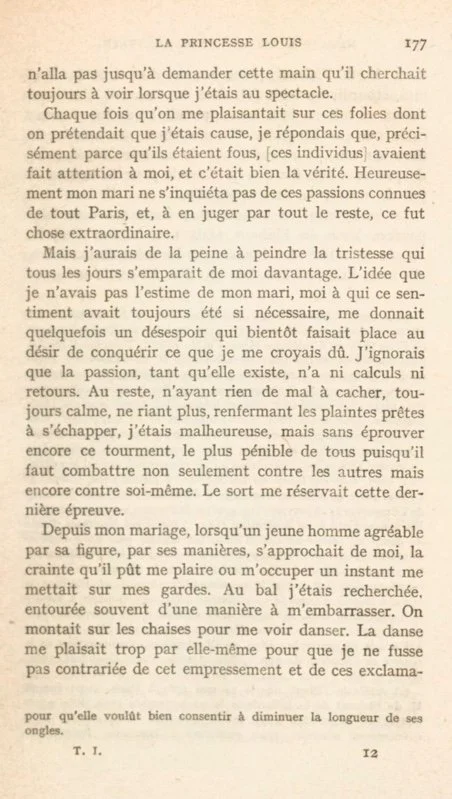Let’s have another look at Hortense’s Memoirs. If you want to read the book it is available for free at the side bar in English and French. Use the widget on the sidebar to translate the text below into pretty much any language.
In this excerpt, we learn about the fruitlessness of allowing others to abuse us. Abusers become empowered the more we let them hurt us. In this destructive cycle, abusers become even more anxious and controlling while the victim becomes less and less capable of fending off new attacks. The cycle only ends when the victim stands up and refuses to tolerate anymore mistreatment, no matter what the abuser tries to keep the dynamic going. This is when we see the “extinction burst”, abusers will try any game to maintain their illusion of power. They only have the power that we give them.
My domestic sorrows increased from day to day. What could I do to make a man happy who did not know the meaning of that word? I still hoped to succeed; my life, my days revolved about this problem; nothing else mattered. Therefore, I was very much surprised when one day Caroline came in to see me and for the first time I heard that the Consul was about to be made Emperor.
“People say," she added, "that only Joseph and Louis are mentioned as members of the new dynasty in the decree of the Senate. Can that mean that your children will be princes, heirs to the throne of France, and my children, their cousins, will be nobodies? I will never endure such injustice. I will bring them up to demand their rights, to reconquer them if necessary."
I could not sympathize greatly with Caroline's outburst, since her husband was, after all, only the Consul's brother-in-law, but I realized that such a law would make enemies for my children. The idea worried me. In vain, by way of consolation, did I express my doubts as to the accuracy of the reports. Nothing would quiet her. Her sister Elisa also shared her opinions and encouraged them.
They made such a fuss that their complaints finally reached the ears of the Consul, who one day made the remark: "Really, if you believed my sisters, you would think that I had robbed my family of the heritage of the late King, our father."
This epigram was repeated all over Paris, and people found it very witty. In the meanwhile, the Emperor's sisters were made princesses and had each her maison d'honneur similar to mine and that of the Princess Joseph.
One morning when I went to see my mother at Saint Cloud, I found her surrounded by various officials who were paying their respects to her as Empress of France. Then and then only did I discover that Caroline's fears were justified.
I cannot yet understand how so important an event made so little impression on me. Doubtless partly because it made slight difference in my social position, which was already so prominent, doubtless too because I was entirely wrapped up in my private troubles.
It was necessary, nevertheless, to receive all the officials and the foreign ambassadors who called to present the congratulations of their masters.
The idea that henceforward I should address all the crowned heads of Europe as "cousin" did not flatter my vanity any more than the finding of an appropriate reply to all these compliments worried me. When in some vast drawing-room where all eyes were fixed on me, I felt nervous, but in private receptions I always knew how to banish the shyness of others.
I must make one exception to this remark, my rather extraordinary first interview with the Prince-Primate of the Confederation of the Rhine. I was waiting for him in my main reception-room when a fire broke out in another part of the house. My son's room was directly over the place where the fire started. I dashed upstairs and brought him down with me. Meanwhile the blaze had been extinguished.
The Prince arrived, but as I spoke to him, I felt all my emotion, all the effort I had made to conceal my alarm from the child's nurse overcome me, and I burst into tears.
My guest was extremely astonished. The more he sought to find out the cause for my grief, the less able I became to answer his question. Afterwards we frequently laughed heartily together over his strange reception.
The only change I was conscious of as a result of our new rank was an increased severity on the part of my husband, who made etiquette and propriety excuses for keeping at a distance all our friends and acquaintances. One of the two young Americans, the Tascher boys, who were cousins of my mother, had been sent to a boarding-school.
The other, the elder, was taller, kind and gentle, but not particularly intelligent. He had enlisted in the Imperial Guard. No effort was made to prevent him from beginning at the bottom of the ladder. The Emperor was particularly severe in his criticism of members of his own family. He thought that he already had shown favoritism in not putting the boy into one of the regular infantry regiments. The poor lad, forced to go out early in the morning, found it hard that an American, especially a cousin of the Empress of France, should have to begin his career under such painful conditions, which however were slightly improved by his being allowed to come and see us occasionally.
In connection with this, I must mention a characteristic bit of jealousy on the part of my husband. An American wrote me that if he did not immediately obtain twenty-five Louis, he would drown himself in the Seine. I sent for my cousin to see what was to be done. He was out at the time. That same evening in the presence of my mother and my husband I spoke to my cousin privately in my small drawing-room asking him to look into the matter and deliver the money. As I had forgotten the letter it was agreed that early the next morning my cousin should stop at our house for it on his way to barracks. This was certainly a very innocent secret, which I would have told my husband had he questioned me, but having heard from other people that Tascher had called the next day before we were awake, he forbade the young man to come again to the house.
For some time, I was unable to understand why my husband when he got up peered into all the drawing-rooms and closed all the doors before going to his own part of the house. But I soon learned the reason. One day my maid came to me in tears, saying she had been locked in her room, that she was aware my husband was suspicious of her, but an honest woman could not be expected to put up with such treatment. I could not succeed in quieting her; she felt herself to have been more insulted by such suspicions than I was.
Soon however she relented and exclaimed, "Ah, madame, don't think that I, who have been with you ever since you came out of boarding-school at Saint-Germain, who know you better than anyone else in the world, am not aware of all you suffer in silence. Your courage has won my respectful admiration. It is only on your account that I stay a day longer in a house where people dare accuse me of misbehavior."
This maid was a woman of good family from Saint-Quentin. Before coming to me she had served only in the household of Mademoiselle Orleans. She had not been able to follow the latter abroad, and Madame de Montesson had given her to me when I left Saint-Germain. Her brother was a captain in the Guards with an excellent record. Her words, together with the strange behavior of my husband, made me realize at last that his distrust of me was of a most insulting kind.
Never before had I been willing to admit this fact. It grieved me and at the same time hurt my pride. I, who loved virtue passionately, believed that my character was safe from any such suspicions. What means could be employed to regain in my husband's eyes that stainless reputation to which I attached so much value? I set myself to accomplish his by scrutinizing my most trivial actions for fear they might be misinterpreted.
Then, too, I avoided ever finding fault with my husband, ever concealing anything from him, and always attempted to be absolutely loyal and irreproachable in word and deed. Experience was to teach me that all this was fruitless. To return to the case of my cousin, he was refused admittance to our home. He complained of this to my mother.
The latter spoke to the Consul, who made it plain to my husband that it was ridiculous for him to refuse to act as the protector of this young man, who on account of Louis' hostile attitude risked falling in with evil associates. Moreover, my husband gave the public cause for malicious gossip when he thus abandoned a boy he had previously received as a guest.
Louis replied to his brother, "How can you expect me to receive a man who enters my house every morning at seven o'clock before anyone is up?" Mother repeated this sentence to me, and its malevolence proved to me that he whom Heaven had seemed to make my natural protector was in truth my avowed enemy. I did not imagine that passion could cause one to so deform the truth.
Without allowing myself to make the slightest reproach, which I would have considered humiliating to me, I could not restrain myself from telling Louis frankly that, although it might not please him that my cousin should call in the morning, at any rate he could not without endangering my reputation forbid his attending my reception to which all Paris was asked. Louis answered harshly: "Do you want him to come to the house so that I may have the chance of running my sword through his body?"
This was the only answer my husband deigned to make. I had to accept being misjudged and slandered. My mother's uncle, the brother of the two Tascher boys, died in Paris without my being able to attend to any of his needs. Another American, a cousin of mother's, Madame Sainte-Catherine d'Audiffredi, asked to see me in order that she might recommend her children to me before she died.
I hurried to her bedside, but when on my return, still trembling from the sight of her pale distorted countenance, I described to Louis the details of this profoundly affecting scene which I had just witnessed, he replied with a sardonic smile : "You hurried to her with so much eagerness that doubtless there were other less painful objects to be seen there."
This remark was an allusion to my cousin, who also stood by the bedside of the dying woman. Such a comment coming at a moment of so sincere and deep an emotion made me judge my husband still more severely. If my cousin had attracted me, would not my husband's tactics have made me think of him still more often? But such was not the case, and fortunately people in general did not believe in my guilt, showing themselves thereby more fair than my husband was wise.
After that I never saw my cousin again. He took part in several campaigns, then returned to Martinique and settled there permanently. Louis never stopped to consider what his fantastic ways might make people think or say about me.
He cared nothing about that. The more gently I tried to accede to his wishes the more exacting and unreasonable he became. One day I stayed late in bed, not being very well. He knew this. About four o'clock in the afternoon I was in my dressing-room, which opened on the antechamber.
My husband arrived and found a servant there who a moment before had called to deliver a package but had not been able to come in. The servant said the door was locked. Immediately Louis went upstairs to his room by a private staircase and although he saw me dressing quietly with a maid, he hurried past me and began to search my room, drawing-room and even the garden. The following day the servant was dismissed pitilessly without any grounds being given for this dismissal.
Not till long afterwards did I discover that this encounter with a servant outside my door was one of my husband's most serious charges against me. Speaking to Adele, who by her marriage had become Madame de Broc, he brought out this incident as a positive piece of evidence in refuting my friend's reproaches that he made me miserable without any good reason for his attitude. "I found a servant stationed as sentinel outside her door."
"But," replied Adele, "you went into her room. Did you find anyone there?"
"No, certainly not. The man had escaped by the garden, he was a better runner than I was."
“But why do you believe things you were not able to see? Your wife always shared your apartment, she never tried to impose her own will, she was always accompanied by as strict a woman as Madame de Boubers. What evidence have you against her?"
“Ah, if I had only had proofs do you believe I would have kept her as my wife? But with a woman one never can tell. Aren't there wives who, though they sleep in the same room, in the same bed as their husbands, get up while he is asleep to keep appointments with other men?"
“Stop, stop!" exclaimed Madame de Broc. "I have never read vile books, but if they have corrupted you, you do not deserve a wife like yours."
This conversation, when Adele repeated it to me long afterwards, explained many things I had never understood. Often I was tempted to think that my husband, although such a thing would have been surprising in a military man, was afraid of robbers, so great was the care with which he scrutinized every corner of our apartment before retiring, so earnestly did he insist on having everything locked up by his valet, who carried off the key with him and did not return till the next morning. Since the behavior of the upper classes attracts the notice and provokes the comment favorable or otherwise of the rest of the population, it was natural enough that my domestic troubles should arouse the sympathy of some people. That those troubles should have been severely criticized by others, I can also understand. But how was it that out-and-out madmen should be attracted by what they heard of me?
A young Prussian was sent to Paris to secure for a Berlin newspaper the noteworthy productions of our literature. He lived in the rue Saint-Lazare and, doubtless, from his windows often saw me in my garden playing with my son or carrying him about in my arms. This sight aroused his frantic enthusiasm, as though a person's rank could affect the sentiments of a mother toward her child.
Instead of writing about literature he wrote constantly about me. He followed me everywhere. Any little act of charity I might happen to perform would be described with such a wealth of detail that his editor was obliged to point out to him that he was not in Paris to write exclusively about "La Princesse Louis," and that unless he resumed his regular news letters he would be dismissed.
This warning had no effect. Fearing that the young man's mind had become affected, the editor sent word to his correspondent's parents. Someone came to take him home. He had gone mad. A certain Chevalier d'Arzac, a former exile, followed me constantly for six years. On all my walks, my visits to the theater or to Malmaison, he shadowed me.
One day he stopped the Consul to present a petition asking for the hand of his stepdaughter. Another time, as I was entering my carriage, I turned and instead of my mother discovered this man, whom the servants were holding back by his coat. For a while he was supposed to be a spy. He was merely crazy. When taken to the asylum at Charenton, the doctors declared that his only eccentricities were his belief that I was his wife in the eyes of the Almighty and his writing to me all the time. He always declared that I could be his bride in Heaven. His family took him back to Lyons. I do not know what became of him.
A Monsieur de Livry had had a picture painted of a woman with her hands folded on her breast; she had unusually large finger-nails.
He had sworn never to marry anyone but the woman whose hands had served as model for those in the picture. He sent the picture to my mother to be given to me, since he considered that I resembled his ideal. However, he was not mad enough to ask for that hand although he always sought to obtain a glimpse of it whenever we happened to go to the theater.
Every time people teased me about these follies of which I was said to be the cause I replied that these men paid attention to me simply because they were insane. And this was true. Fortunately, my husband did not, oddly enough, bother about these episodes, which were known to everyone in Paris. But I should find it difficult to describe my mental anguish, which increased from day to day.
The idea that my husband did not respect me, a woman to whom respect had always been such a necessity, sometimes drove me to despair, but this feeling gave way to a determination to win back what I felt to be my just deserts. I did not know then that passion can neither foresee the future nor remedy the past.
Moreover, although I was unhappy, never smiling and stifling the complaints which rose to my lips, yet, as I had nothing to conceal and was always calm, I was still spared the severest trial of all, the moment when one has to struggle not only against others but also against oneself. Fate still held that supreme trial in reserve for me.
The original French is available below:

















